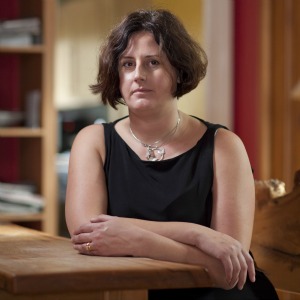Dr Margaret McCartney is a GP on a mission. Through her insightful contributions in both the medical and lay press over the past decade, she has provided a refreshing alternative voice to the prevailing discourse on some of the biggest controversies in medicine. In particular she has challenged received wisdom about the benefits of health screening programmes, raising concerns about the risks of over-medicalising the population.
As a result she has become somewhat of a champion for a growing body of GPs across the UK who are increasingly uneasy with what they see as the drive to diagnose and treat patients, without due consideration of the potential harms such policies bring – not only to the individual patient but to the health of the wider public.
Dr McCartney has wasted no time in using her platform on RCGP council to take these concerns right to the top of the agenda. Since her election to council last year, she has instigated the creation of a new standing group, specifically tasked with addressing these problems and giving GPs more support and professional guidance on how to deal with the conundrum in their daily practice.
The creation of the group, she tells Pulse, has come out of growing concerns from GPs that the Government is shifting the focus away from those patients with the greatest need onto preventative measures for healthy people, for which the benefit-to-risk ratio is far less certain.
‘Over the last decade we’ve become more aware that quite often too much medicine is a bad thing, and lots of concerns have been raised that we’re going in the wrong direction with an awful lot of healthcare,’ she says at the group’s official launch at the RCGP annual conference.
‘What [the group] wants to do is.. to try to address the kinds of problems that we see, in terms of policy, practice and patients,’ she adds.
‘I think there are issues in all those three areas that are going in the wrong direction now and need to be hauled back, taken within professional control, working in partnership with patients, making sure we’re getting appropriate care to the people who need it and will benefit from it, while – in the main – leaving most well people alone.’
The group will focus on giving GPs more of a say in how policies and guidelines are developed – as well as giving them the tools to deal with the complexity of their daily practice. They plan to produce two pieces of work over the course of the next eighteen months to two years.
She says: ‘We’re interested in policies that drive over-diagnosis and under-diagnosis – in particular thinking about prescribing practices, guidelines and QOF and what could be done to try and help in those areas.
‘We’re also thinking about practice day-to-day. How to make good evidence-based decisions with patients in the stress of a 10-minute consultation – and quite often two or three problems from patients. So, what kind of information we need easily on hand within five seconds, to help GPs and patients make good decisions.’
But Dr McCartney is also clear these problems are part of a wider debate to be had with patients and in society in general, about the direction of medicine and how best to use limited healthcare resources.
She says: ‘I think it’s patients who deserve to know that the resources are not going in the right direction at the moment and that we should be redirecting it to people who are most likely to benefit.’
She says recent controversy surrounding NICE lowering the primary prevention risk threshold for interventions – including use of statins – to prevent cardiovascular disease feed directly into this debate.
She says: ‘In a limited system, who are we to stop doing in order to make space for doing risk assessments on all these millions more people? It is fine for NICE to do cost-effectiveness evaluations, but are these the only thing that should count – are there other issues involved? I think there are.
‘I think it is good to have a wider public debate about this – what direction medicine is going, what we expect of the NHS, what it can provides for us and where we want to draw the line.’
Similarly, Dr McCartney argues the controversy over policies to incentivise GPs to screen for and diagnose dementia marks a watershed – a time to ‘let go’ of targets and let GPs’ professionalism take precedence.
She says: ‘There is a revolution needed, we need to step away from targets… that create deprofessionalisation of our work, and let go.’
She adds: ‘Doctors are vocationally trained, reflective people paying attention to the evidence… peer review, being open about diagnosis rates, alert to criticism – that should be what we are basing our practice on. It should not be the creation of artificial targets.’
Pulse July survey
Take our July 2025 survey to potentially win £1.000 worth of tokens












